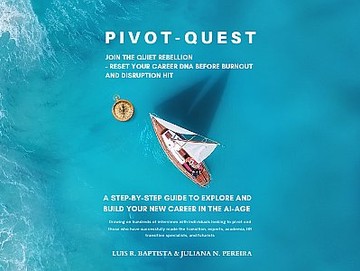Acquisitions editors are usually your first contact.
You have an interested publisher! That’s great. Now what do you do? What do you say?
A lot of authors are unsure how to approach an acquisitions editor or contact at a traditional publisher, and sometimes end up losing out on a book deal because of it.
This is not “What can you do for my book?” or “What do you have to offer that another book publisher cannot?”
No.
This is not a paid service.
This is the beginning of a partnership. And you need to show anyone interested in acquiring or supporting your book the time and respect they deserve.
Because that’s what you deserve as well.
And so, the first thing you should talk about is not your book. It’s each other. Do you like one another? Could you work together? Do you believe you’re both good likable people?
If not, then the book doesn’t really matter now does it.
If yes, then on to the book talk. Most of this stuff is laid out in a contract. You’ll either agree to the terms or you won’t, negotiate, and accept or deny the book deal.
There is no script to follow. This is not a pitch. They already have that in the form of your book proposal. Answer their questions about the book and what you’d like to see for it.
Be prepared to talk “numbers.” Know your blog stats and number of email list subscribers, Facebook fans, and Twitter and Instagram followers. Let them know the work you’ve put into yourself and your book project tells them you’re willing to undertake the work ahead.
Then ask them some of your own.
Please don’t ask them which other books they’ve published. You should be able to find those on their website before a phone call.
Maybe ask what specifically they like about your niche book.
What’s most important in this step is whether the editor or publisher sounds passionate about you and your book. If they genuinely like the topic, the direction of the plot or manuscript, and can see your book on retail shelves then you’re likely in good hands.
The goal here is to get an offer; a publishing contract to review.
You get that by asking for it. If you’re feeling each other and you want to move forward, ask the editor to send you their terms.
Because you are ‘Excited and grateful they expressed interest and look forward to the opportunity.”
No matter which publisher or how many express interest in your book, that should be your response. Even if you don’t get to the contract step (either because you are not interested or they’re not), those words should be passed along in some form.
On the book publishing contract, you’re going to have some questions.
There are some general rules and expectations in the publishing industry. So here are some tips and suggestions on how to negotiate a book publishing contract:
- Upfront cost. If there are any that means the publisher is either a service or a hybrid publisher and likely has limited authority and experience on the rest of the bullet points below. This is not necessarily a bad thing. It just means they’ll print and publish your book for a cost, just like any print-on-demand service like Amazon or CreateSpace. If the contract has an upfront cost and a royalty rate, they are a hybrid publisher and it’s okay to negotiate for lower upfront cost and higher royalties depending on their proposed level of service or distribution. These contract terms are often used for first-time authors, indie authors, or self-published authors with low book sales on the first book.
- Royalties. You’re looking for at least 15–20% book royalties from a traditional publishing house, 15–45% from a small press, and 50% or above from a hybrid. These are for the physical book. The discrepancy is due to authority levels with the remaining bullet points below.
- Paid advances. Usually only offered by traditional publishers either to 1) provide time to complete the book, 2) show goodwill and confidence in future book sales, or 3) sway you to their company in the event of competing offers. In any case, a book advance is very rare to get for a vast majority of authors, given that only 4% of books get contracted in the traditional publishing model. Literary agents often spend most of their time negotiating paid advances and mostly consider working with books that can provide a big payday here. You should never expect this going into a conversation with a publisher. Ego is not good for book deals, or for anything else really.
- Distribution. All publishers can get you into online bookstores, including Amazon, Apple, and Barnes & Noble. You can do that yourself actually. So that’s not a compelling factor in a publishing contract. Your goal is to get your paper book into physical bookstores. Traditional publishers have the most authority here because they have sales teams to pursue it. Many small presses and independent publishers, as well, have distribution through the major publishers or good placement in bookstores. There is rarely any mention of this in the contract, so it's good to ask who they are distributed through. This could be a point to negotiate higher royalties or lower upfront costs.
- Editing. Even if you’ve already had your manuscript edited it’s always a good sign when the publisher is more involved here. You want the publisher to treat your book like their own; not like just another stack of paper to run through their mill. The contract terms should clearly specify this. Traditional publishing deals, from experienced publishing houses, acquire new titles from editors. This means there is a level of care to the quality of the book and proposal from the very start. Hybrid publishers, on the other hand, don't have large editorial teams to review quality (which is partially why they don't sell books into physical bookstores). The less you see about editing in the contract, the more reason to negotiate higher royalties or lower upfront cost.
- Marketing. This is not often included in a contract. Having someone who can just take on selling your book for you would be great. But that’s not how it works. It’s about the level of support here. A traditional publisher has credibility with major publications and influencers to review your book and drive sales. Book tours and signing happen, but for a very small amount of authors. It's about what they can use to get better placement in bookstores. Independent publishers and small presses have these contacts as well, just a tad less. You should not go into a contract expecting these, however. Most hybrid and service publishers, ahem Amazon, invest nothing to get your book in front of more readers.
- Publication date. It's important for the date to be in the contract. You don't want to agree to a contract that says something like they have the right to publish it within 24 months after you deliver a manuscript. You want something specific, and you want a way to get out of the contract if the publisher does not hit the agreed-upon date. This is not usually something to worry about. But be sure it's clear. Publishers have their own schedule a release dates to adhere to. You can negotiate this depending on the time you need, the current manuscript status, and based on any of the bullet points above. For a nonfiction book, you likely want 3-6 months to write the book if it's not yet. For fiction, you likely have a finished book already, and so should only need a month or two for editing.
- Extras. There are some additional things to consider such as ebook publication and audio book creation. The contract should include these items as well, and each will have its own book royalties, publication dates, and publishing processes. Royalties should be higher than print books for these, and publication usually during or after the books initial release
Those are the main things to consider in traditional publishing deals, or any contract from any type of publisher. It's a lot to consider, and guidance from anyone who has experience with traditional book publishing is a help. The publishing industry has a path for every author, and that's why it can be confusing to indie authors.
Self-published books don't receive contracts because the entire publishing process is done by the independent author. For this, they receive 100% of the book royalties, rights, and have full creative control. Although there are successful authors who take this path, the downside is no distribution, no added credibility from a publisher, and oftentimes very low book sales overall. The traditional route is highly sought after, but a difficult one.
As for the rest of it, just be yourself and think logically about which options are going to 1) give yourself the best chances of becoming a credible author, and 2) give your book the best chances of being produced at a high quality.
Btw, if you haven’t started a book proposal on Publishizer yet, give it a try. It’s free. And we can help you with everything I mentioned above.
Cheers,


